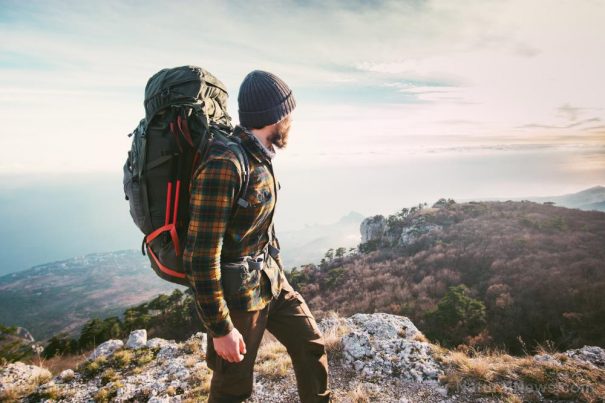Bugging out doesn’t have to harm the environment – 10 low-impact ways to set up your camp
Friday, August 09, 2019 by Mary Miller
http://www.bugout.news/2019-08-09-10-low-impact-ways-to-set-up-your-camp.html

When bugging out, many preppers turn to nature to forage for resources, but an important part of being a prepper is respecting the environment. Whether you’re just taking a quick camping trip for the weekend or planning to live off the grid for an extended amount of time, you should always try to leave your campsite or bug-out location (BOL) in pristine condition. You must keep any signs of your presence to a minimum. The next time you bug out, consider following these 10 low-impact ways for setting up camp. (h/t to PreppersWill.com)
Do your own research and have contingency plans
Despite what the movies tell you, living off the land is much harder than it looks. You won’t be able to wing it when you’re miles away from civilization. Before bugging out, learn everything you can about your BOL. Look up the local flora and fauna, terrain, hiking trails, and weather, so that you know what to expect and what you need to bring. Pack all the necessary supplies for food, water, clothing, shelter, and first aid. Have contingency plans in place, in case you run out of supplies. If you need to forage for supplies, take only what you need.
Follow the wilderness guidelines
Familiarize yourself with the local wilderness guidelines regarding group size, fires, proper waste disposal, use of special equipment vehicles, and basic conduct. This isn’t simply to ensure that you don’t break any rules, but also to help protect the land and maintain its quality. See if there are any special permits you must first obtain before bugging out.
Stick to the trail and tread lightly
You won’t be the only one using known hiking trails, so it is important to minimize trail erosion. Wear moccasins or well-cushioned running shoes to help absorb the impact of your steps. Avoid wearing heavy, lug-soled boots. Cover your tracks, if you can. If you can’t, then avoid trampling on vegetation. Pick up any litter you see on the trail and leave none of your own.
Select your campsite carefully
Your BOL or campsite should be at least 100 feet away from any natural water sources. Ideally, you should find a campsite that has already been used before. Place a waterproof ground cloth underneath your tent before setting it up. You can remove small rocks and pebbles, but leave any soil and vegetation where you found them. Make sure that your tent blends in with the surrounding area.
Be responsible for your campfire
If you need to start a fire, the first thing you should do is to obtain the necessary permits. Next, collect your firewood by snapping off dry twigs from different areas, instead of from a single tree. Try to keep your fire small and contained within pre-existing fire rings. You can also dig a smokeless fire pit to minimize the amount of fuel you need. (Related: Conceal your raging campfire with the ancient Dakota fire hole technique.)
Dispose of your trash properly
Under no circumstances should you bury your food or garbage. Instead, you should burn what can be burned and carry the rest back home in large plastic trash bags. Try to leave your campsite cleaner than when you first found it.
Always use established latrines and outhouses
Proper waste sanitation should be a priority, so be sure to use only established latrines or outhouses that are far away from any sources of water. In case of emergencies where there are no latrines or outhouses nearby, use a garden trowel to dig a small hole in an area with biologically active soil for quick decomposition. The hole should be at least 100 feet away from water sources, potential runoffs, trails, and campsites.
Wash your dishes away from water sources
Instead of washing your dishes in streams or rivers, you should wipe off any remaining food from them using paper towels. Next, use biodegradable soap to scrub off any residue and rinse the dishes clean with boiling water.
Use biodegradable soap
Whether you are washing dishes or bathing, always use biodegradable soap that will not harm the environment.
Avoid making any loud noises
Loud noises may frighten birds and other animals. Keep your voice low when speaking and avoid doing anything that may create loud noises.
When bugging out, it is important to always preserve the natural beauty of the great outdoors.
Sources include:
Tagged Under: Tags: biodegradable soap, bug out, bugout bag, bugout location, bugout supplies, campfires, campsites, emergencies, hiking trails, latrines, off grid, outdoors, outhouses, preparedness, Preppers, prepping, prepping essentials, sanitation, SHTF, survival, survival gear, survival plans, survival tools, survivalist, Waste disposal, water sources, wilderness guidelines

